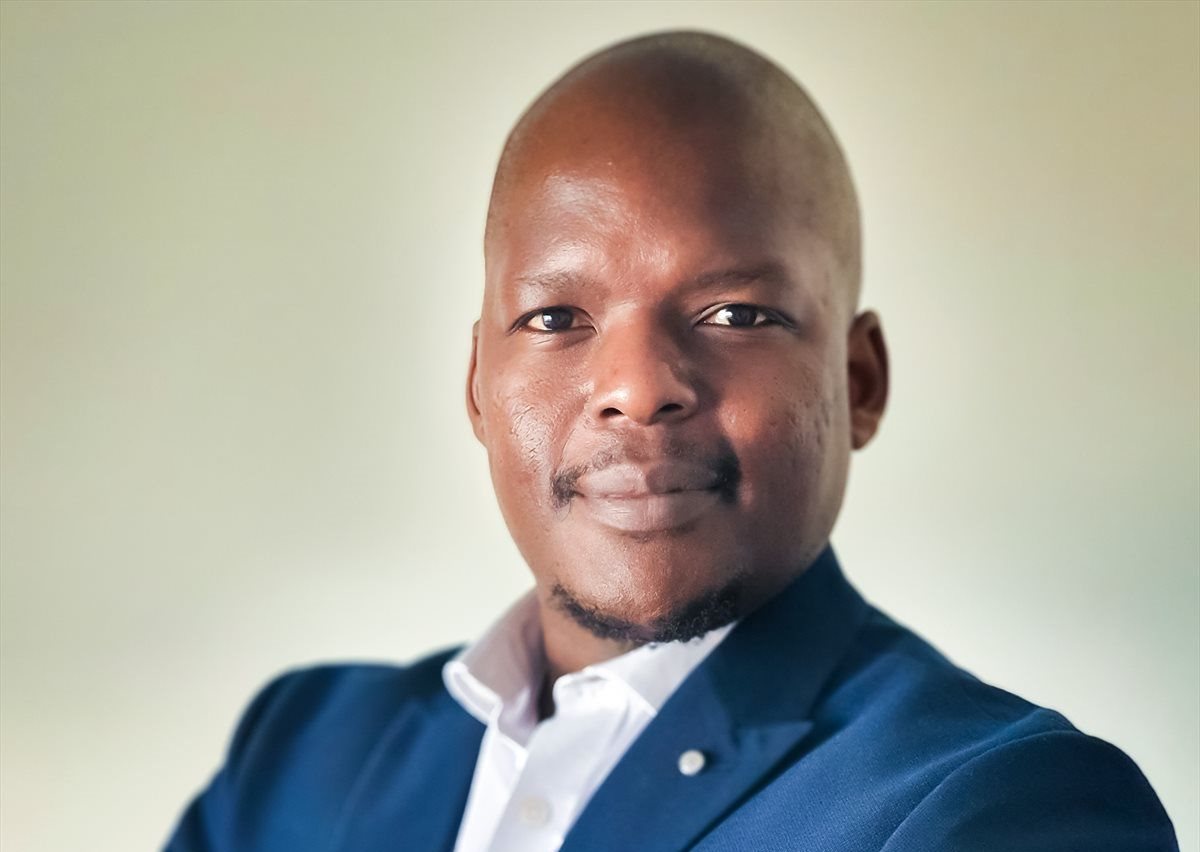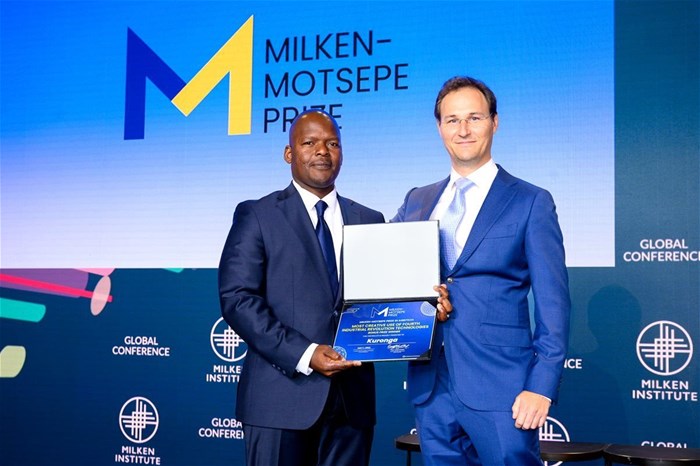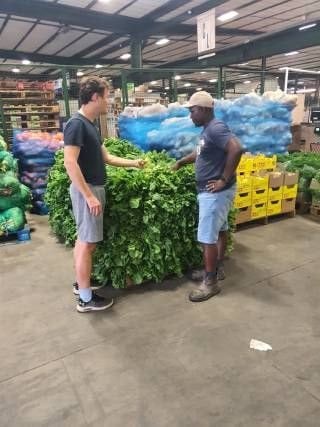This Africa Month, we chat with Tendai Chitapi, co-founder of Kuronga, as we delve into the incredible journey of this innovative company in transforming Africa's agricultural landscape. Kuronga's efforts have been widely acknowledged, particularly with their recent achievement as one of the recipients of the esteemed Milken-Motsepe Prize in AgriTech. They were specifically praised for their creative use of advanced technologies that are part of the Fourth Industrial Revolution (4IR).

Tendai Chitapi, founder, Kuronga
Here, we chat with Chitapi and explore Kuronga's innovative approach, examining the significant impact it has on Africa's agricultural sector.
Could you give a brief overview of Kuronga and how it addresses challenges for small-scale growers in Africa? What inspired you to create a solution such as the AI Grading app?
Kuronga was started by myself and Oliver Windram. We're both from Zimbabwe. We came together in 2020 to solve the problem of market access and quality mismatch often faced by smallholder farmers in Africa.
Essentially, buyers of fresh horticultural produce are looking for two things:
1. Standardised quality- i.e. they want tomatoes of a particular size and ripeness that is the same across all deliveries.
2. Consistent supply- they want the same predictable quality delivered to their receiving bay on schedule consistently throughout the week.
Small-scale growers often struggle to achieve this as their grading operations are not sufficiently rigorous on-farm. Quality and production rates are also more challenging to manage at small scale. Buyers also find they have to work with and manage grading standards for numerous small-scale growers who collectively could be more simply substituted for a single large-scale operator. This generally leads to sub-optimal market engagement of small-scale growers.
At Kuronga, we realised that we could use digital mobile tech powered by AI to help farmers improve their grading standards on-farm. We could also use this same platform to coordinate deliveries across numerous small-scale growers. This, coupled with our key insight that there is a market for every grade of edible produce would allow us to dynamically allocate a farmers produce to the correct market based on grade with small-scale growers collectively helping to provide consistent supply.

Kuronga co-founders Tendai Chitapi and Oliver Windram
Kuronga was recently recognised as one of the winners of the Milken-Motsepe Prize in AgriTech. Can you share more about the competition and why your AI Grading app was recognised as a creative use of Fourth Industrial Revolution technologies? What sets it apart from other solutions?
The Milken-Motsepe Prize team were looking to award prizes to solutions that among other challenges seek to address food waste in the agricultural system. Based on the comparison of ourselves with other competing teams, we have understood that ours was one of the few digital solutions that had the potential to rapidly scale.
Our focus on optimising farmer marketing of produce to the right market, using an objective automated solution to match the correct quality to the appropriate market, not only has the ability to rapidly scale but also to help address food waste in a meaningful way. Simply put, if farmers sell more and waste less of what they grow, this does help reduce on-farm waste. Apart from the prize money which is extremely helpful, we have also found that the validation that this prize has provided us as a young start-up has been immensely valuable.
Kuronga aims to enhance food security by enabling farmers to sell their produce on time and reducing food waste. How does the app contribute to reducing waste at the farm gate? Can you provide examples or data?
The app helps farmers grade their produce at the farm gate. It then helps them match the variable, now graded, quality that they grow to the appropriate market. Our key insight is that there is a market for every grade of edible produce. Our app helps farmers allocate the correct quality to the correct market. This means that overall they sell more of what they grow and less gets rejected at market because of grading inconsistency.
How does the app address the unique needs and circumstances of smallholder farmers in different regions of Africa with their diverse agricultural practices and challenges?
Managing is extremely challenging for all farmers but particularly small-scale growers that may not have sufficient capital to improve quality through changes in production. Local environmental conditions can also differ widely and thus, significantly impact a smallscale grower's crop grown on a single two-hectare plot.
It is important that small-scale growers are given the opportunity to sell regardless of quality variance so that they can continue to operate and produce food off their land. Kuronga helps farmers achieve this. Furthermore, through the collective coordination of supply and quality management on the Kuronga platform, small-scale farmers can help deliver consistent supply to buyers.
What are your plans for utilising the cash prize from winning the Milken-Motsepe Prize to enhance the AI Grading app and expand its reach to benefit more smallholder farmers in Africa?
We are working on the app to improve the user experience and committing more time and resources to onboarding users.
In what ways do you believe your accomplishment can inspire and encourage other aspiring innovators in Africa to pursue their own entrepreneurial journeys within the rapidly growing tech ecosystem?
It’s a long hard journey, keep going, believe in yourself and work with others that also believe in you. Persistence and passion is key.
What challenges has Kuronga faced while implementing its solutions in Africa? How have you overcome them, and what lessons have you learned?
It has taken us a while to uncover the reason behind the challenges that small-scale farmers face when engaging with markets. By talking directly with farmers and buyers we developed a better understanding of these challenges.
What are Kuronga's future plans and goals? How do you envision the company contributing to the sustainable development of Africa's agriculture sector?
100, 000 users by year five. Enhanced food security and sustainability are written into Kuronga’s DNA. We have built a company that is specifically tackling food waste by helping farmers grow higher quality produce, ensuring maximum returns to the farmer, and eliminating waste. As we grow, so will farmers’ returns whilst also building a brighter healthier future for Africa.







































